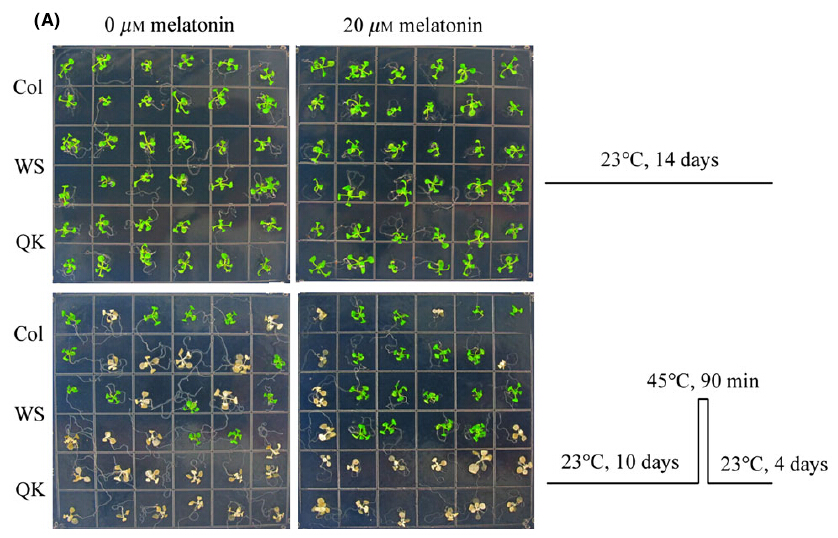Study Reveals the Involvement of HSFA1s in Melatonin-mediated Thermotolerance in Arabidopsis
2015-04-23
In 1995, two research groups first isolated melatonin in plants. Later, melatonin has drawn more and more attention of plant biologists for its widely distribution and multiple in vivo roles in various plant species. As an important signal molecule, the involvement of melatonin in thermotolerance and the underlying molecular mechanism in Arabidopsis were largely unknown.
Dr. SHI Haitao, supervised by Prof. CHAN Zhulong from Wuhan Botanical Garden, examined the endogenous melatonin level after heat stress in Arabidopsis and also applied the exogenous melatonin to investigate the in vivo role of melatonin in plant thermotolerance. Additionally, the study revealed that class A1 heat shock factors (HSFA1s), which served as the master regulators of heat stress responses, were involved in melatonin-mediated heat stress response in Arabidopsis.
Notably, the possible model depicting the mechanism of AtHSFA1s in melatonin-mediated thermotolerance was proposed. When heat stress was applied, the endogenous melatonin level was quickly and largely induced, and the increased melatonin further up-regulated the expression of AtHSFA1s. Then, the activation of AtHSFA1s increased the transcript levels of heat-responsive genes (HSFA2, HSA32 (heat-stress-associated), HSP90 (heat shock protein), and HSP101), and up-regulation of these genes conferred thermotolerance in Arabidopsis.
Results were published in Journal of Pineal Research (doi: 10.1111/jpi.12219) entitled “Melatonin induces class A1 heat-shock factors (HSFA1s) and their possible involvement of thermotolerance in Arabidopsis”.

The involvement of AtHSFA1s in melatonin-mediated thermotolerance in Arabidopsis (Image by SHI Haitao)